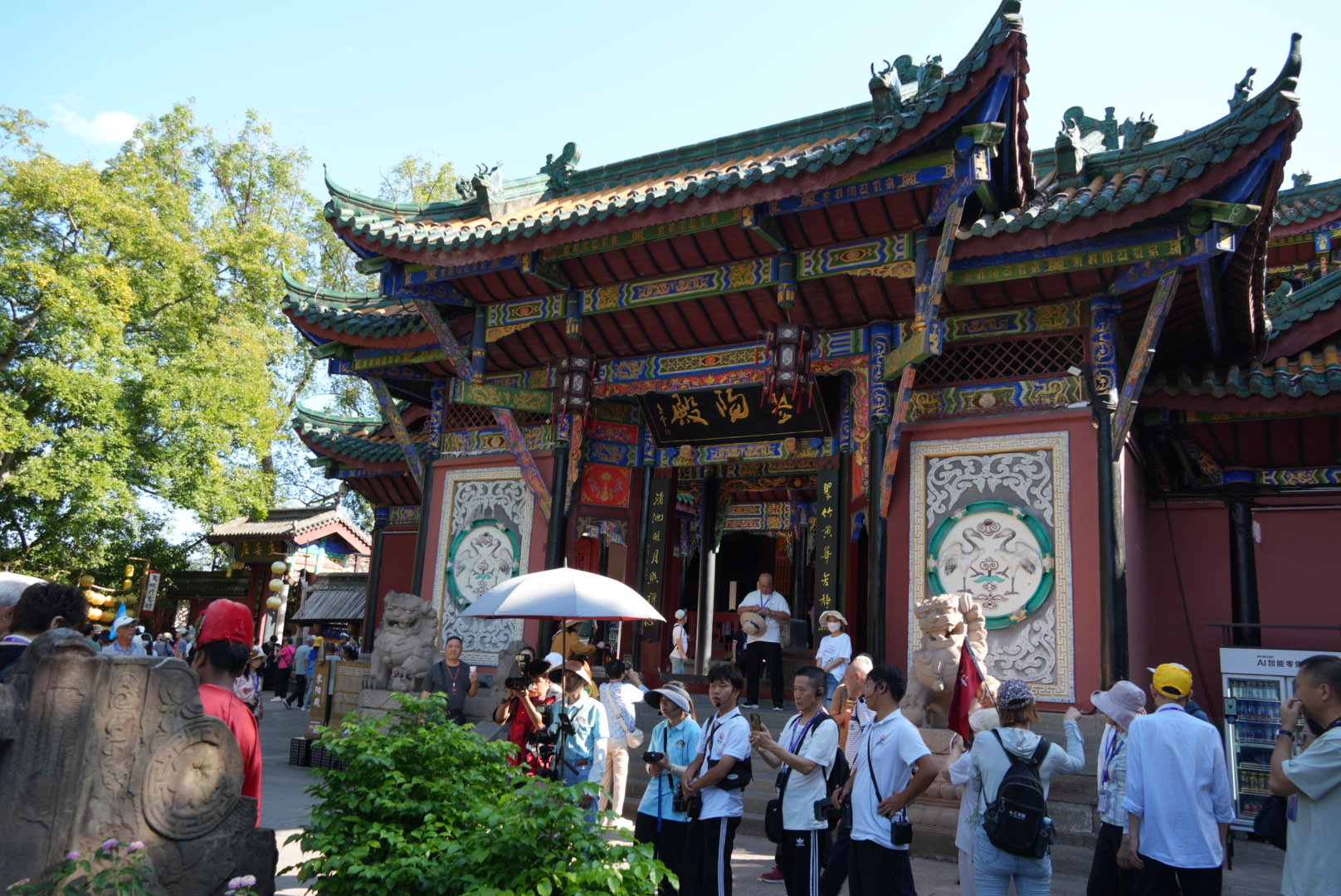Our Century Legend cruise ship glided silently along the broad, misty waters of the Yangtze River before anchoring at our first port—Loyalty County in Chongqing. The name alone, Loyalty, seemed to whisper tales of ancient virtues and the enduring spirit of China’s heartland. But our destination that day was one that balanced on the edge between beauty and eeriness: the Ghost City of Fengdu.
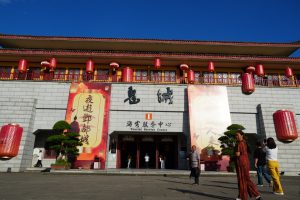
Unlike the “ghost towns” of the American West—those sunbaked relics on the road to Las Vegas—this Ghost City was no accident of history. Fengdu has stood for over two thousand years, perched on a mountainside overlooking the Yangtze. From a distance, its temples and archways appeared shrouded in the same pale mist that rose from the river, lending it a mysterious, almost otherworldly presence.
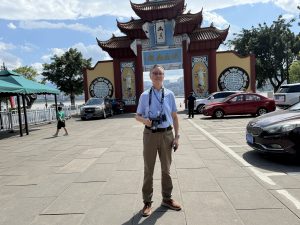
To reach the town, Rosa and I boarded a cable car that lifted us slowly above the valley. The Yangtze sparkled below, winding like a jade ribbon, while the mountain loomed ahead, its slopes dotted with ancient pavilions dedicated to the afterlife. When we stepped off, the first challenge awaited us—the famous Bridge of Helplessness, also known as the Naihe Bridge.
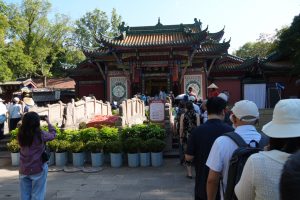
Legend says that every soul must cross this bridge after death. Only those who lived with kindness and virtue could pass safely to the next life. The rest… well, their fate was less certain. I couldn’t help but feel a slight chill as we walked across. The air was thick with incense and myth, as if centuries of prayers still lingered between the stone arches.
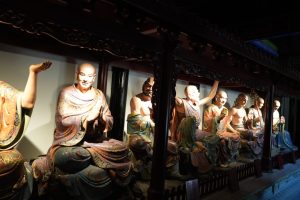
Our guide reminded us of stories from Journey to the West and Strange Stories from a Chinese Studio. Before crossing into the afterlife, one must drink the Forgetful Soup—a potion to erase all memories of suffering, loss, and bitterness. Only after forgetting could a soul move forward into a better life. It struck me how deeply this belief intertwined compassion and morality: even the gods, it seemed, wished humanity peace of mind before starting anew.
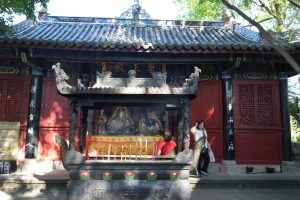
Fengdu’s ghostly sculptures and temple halls didn’t merely frighten—they taught. Each grimacing demon and stern deity reminded visitors to live justly, to refrain from evil, to honor goodness in life if they hoped for peace in death. It was a haunting kind of wisdom, whispered through centuries of faith and folklore.
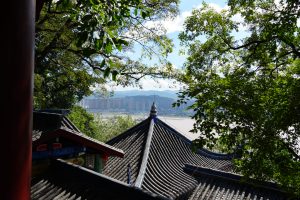
That evening, the haunting gave way to grandeur. We attended the “War Fire of Three Kingdoms” performance—Feng Yan San Guo—staged outdoors with the Yangtze and the Three Gorges as its natural backdrop. It was not just a show; it was an epic come to life. The mountains glowed under fiery lights, echoing with drums and shouts of ancient warriors. Battles raged across water and land, retelling the legendary tales of loyalty and strategy that shaped China’s past.
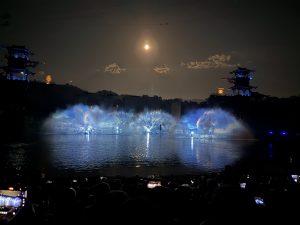
As torches flared and the river shimmered under the night sky, I thought about the day’s theme—loyalty, morality, and remembrance. Fengdu’s Ghost City warned of consequences; the Three Kingdoms Show celebrated courage and honor. Between them, they seemed to offer the same message: to live with integrity, whether in legend or in life.
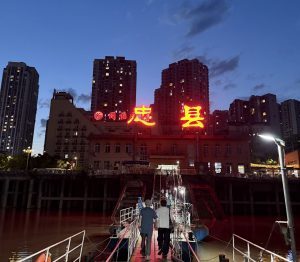
When we finally returned to our cabin, the ship’s gentle motion rocked us to sleep. Outside, the river carried us onward—past ghosts and heroes alike—deeper into the heart of the Yangtze, where every bend held another story waiting to be told.

